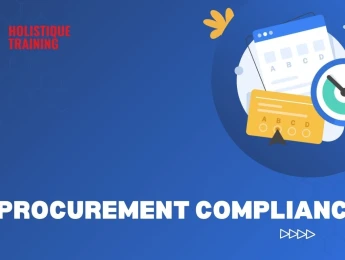Procurement is one of the most important functions within any successful business. It includes applying the right category information, understanding the different contractual functions developed between organisations, and developing effective relationships with supply chains to ensure timely and quality deliveries to clients and customers.
To maximise the value of an effective procurement team, you need to determine the most efficient technology and systems and review processes and procedures to ensure the most productive working methods, skills and techniques. It’s also essential that your employees fully understand their role and how this affects the wider business. They require accessible training, a program built from clear goals and targets, and a performance management strategy to help push procurement forward towards a positive outcome.
Effective category management is the number one requirement for successful procurement practices. It allows the team to manage suppliers, inventories, and quality products to maintain excellent service.
Upon completion of this course, participants will be able to:
- Explore best practices in supply chain and procurement management.
- Understand the role of procurement within a business.
- Develop effective training programs to upskill your team in the more productive category management procedures.
- Evaluate and review your current processes and amend where required.
- Create mutually beneficial relationships with clients, customers, and partners within the supply chain.
- Understand how errors in procurement management can translate into larger problems elsewhere in the business.
- Identify areas of risk and create processes to mitigate them.
- Develop value-adding management styles based on company goals and KPIs.
- Increase your negotiation and communication skills to obtain the best value products.
This course is perfect for people within a procurement team or any managers wishing to learn more about a business supply chain. However, it would be most beneficial for:
- Procurement Personnel
- Supply Chain Management
- Business Owners
- Directors
- Operations Managers
- Supervisors
- Project planners
- Quality Assurance Professionals
- Finance Executives
- Marketing Executives
- Warehouse Managers
This course takes an interactive approach to learning using real-life case studies to demonstrate failures and successes within a supply chain and their impacts on the wider business.
Participants will create their own category management systems using tried and tested techniques to discover the pain points in the supply chain journey. Group discussions will develop frameworks to remove performance, productivity, and quality issues and improve the procurement process while remaining within a set budget.
Day 5 of each course is reserved for a Q&A session, which may occur off-site. For 10-day courses, this also applies to day 10
Section 1: The Importance of Category Management
- Understanding the supply chain.
- Supply segmentation.
- The legal and safety requirements of supply chain management.
- Budgeting and cost-benefit analysis.
- People management and gaining buy-in for your strategy and vision.
- Category management objectives.
- The importance of accurate category management.
- The Procurement Excellence Roadmap (PER).
Section 2: Generating Valuable Assets and Processes
- Your strategic aims and company goals.
- Buying cheap vs. buying quality.
- Creating a valuable supply chain.
- Identifying categories and segmentation.
- Benefits and pitfalls of category management and sourcing reliable assets.
- Order quantities and evaluating economic reliability.
Section 3: Sourcing & Reliable Supply Chains
- Supply chain management and development.
- Using local suppliers or overseas suppliers.
- Thinking about distribution, transport and costing.
- Negotiating an acceptable pricing approach with suppliers.
- Your supplier’s preferences.
- Select Inventory Control (SIC)
Section 4: Identifying Risks & Overcoming Barriers to Success
- Your category management structure and the risk areas.
- Process planning to remove risks.
- Engineering the perfect supply chain.
- A critical review of your organisation.
- Auditing and record-keeping to revisit and improve.
- Super Portfolio Analysis (SPA)
Section 5: Forecasting & Forward Thinking
- Evaluating your organisational structure.
- Future objectives and journey mapping.
- Expansion and globalisation.
- Looking to the future - market predictions and their implications.
- Your corporate responsibilities.
- Employee training and feedback.
Section 6: Managing Suppliers and Partner Relationships
- Developing mutually beneficial relationships with partners.
- How procurement and category management affects the rest of the supply chain.
- Effective communication styles.
- Negotiation and contractual agreements.
- Leverage and support network development to create contingency plans.
- How to come to an end with partner relationships.
Upon successful completion of this training course, delegates will be awarded a Holistique Training Certificate of Completion. For those who attend and complete the online training course, a Holistique Training e-Certificate will be provided.
Holistique Training Certificates are accredited by the British Assessment Council (BAC) and The CPD Certification Service (CPD), and are certified under ISO 9001, ISO 21001, and ISO 29993 standards.
CPD credits for this course are granted by our Certificates and will be reflected on the Holistique Training Certificate of Completion. In accordance with the standards of The CPD Certification Service, one CPD credit is awarded per hour of course attendance. A maximum of 50 CPD credits can be claimed for any single course we currently offer.
- Course Code PO1-104
- Course Format Classroom, Online,
- Duration 5 days













